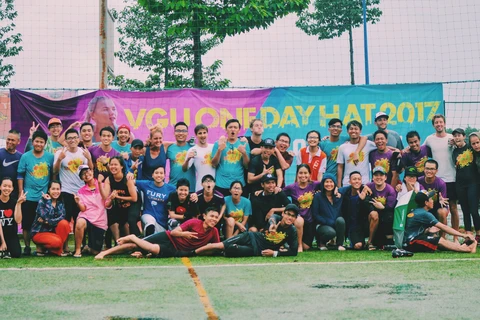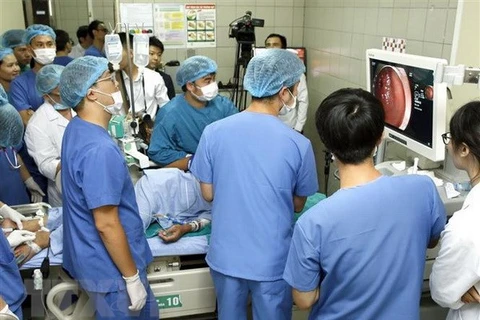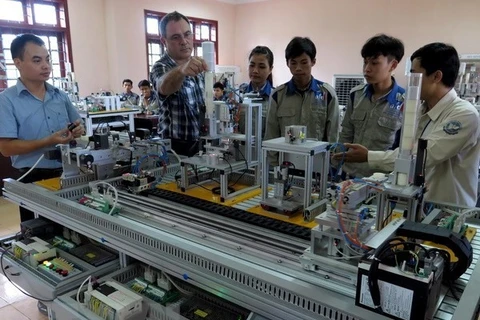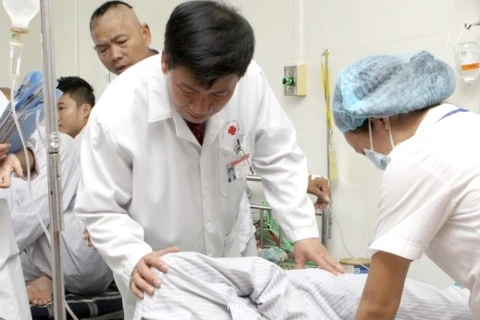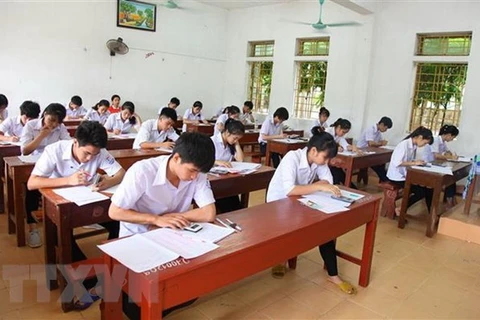Hanoi (VNA) – The university entrance examination for 2019 will mark a new milestone in training orientations as many facilities announced new training programmes to serve the demands of the Fourth Industrial Revolution, many of which are being introduced for the first time.
Alongside, many universities have made changes in training activities to meet the requirements of the market.
New academic programmes
In 2019, the National Economic University (NEU) will open seven new programmes - business analysis, data science in economy and business, financial investment, finance technology, business management in smart operation, quality control and reform, and management of international hotels. All the programmes will be taught in English.
The university plans to recruit just 50 students for each programme. The courses require students to have basic English skills.
NEU Principal Prof. Tran Tho Dat, said that the intersectoral programmes aim to meet the demand for human resources in the Industry 4.0 era. They were built on the foundation of analysis of the labour market with consultations from experts and partner universities. The NEU has also organised separate workshops for each programme with the participation of businesses.
“The graduates should meet the demand of the labour market. Therefore, the gathering of opinions from enterprises is significant for the university to complete curriculum and make it suit the reality,” stated Dat.
In this new academic year, the Ho Chi Minh City University of Technology and Education will also launch new branches in robots and artificial intelligence. The students, who will study in English completely, will enjoy tuition exemption. In the first year, the university will recruit only 20 students for the programme and plans to accept applications scoring at least 24 points on the entrance exam.
The course is an example of the new training trend towards intersectoral orientation, helping students acquire knowledge of multiple sectors. This is also an important requirement for labourers in meeting the Industry 4.0 era.
According to Do Van Dung, Principal of the Ho Chi Minh City University of Technology and Education said that robot and artificial intelligence has high intersectoral characteristics, with the combination of knowledge in many areas, thus it cannot belong to any one traditional faculty.
Along with the programme, the university also plans to open a training programme on the management of construction technical infrastructure, garment and textile materials, and international business.
Meanwhile, the Hue University will launch 15 new programmes such as software technology, biotechnology, environment technology, regional and urban planning, geotechnical engineering, control technology, and automation.
 Candidates receive consultations on choosing training programme for university application (Photo: Vietnam+)
Candidates receive consultations on choosing training programme for university application (Photo: Vietnam+) Change in training orientations
In preparing for the human resource demand of Industry 4.0, many universities have not only announced new training programmes but also focused on enhancing the quality of traditional programmes, with the application of digital technology to meet international standards and integration.
In the Vietnam National University of Agriculture (VNUA), IT training has been intensified in all training programmes, along with issues related to integration, so that students can gain an understanding of the current requirements of the labour market.
According to VNUA Director Nguyen Thi Lan, to launch new training programmes, the university has connected with training facilities in the region and the world via its overseas-trained lecturers. Besides, students also have chances to join short-term exchange programmes, she said.
Strong renovation has also been seen in programmes with no direct connection with IT.
Assoc. Prof. Nguyen Tien Thao from the Hanoi National University, said that changes have been made even in journalism and law faculties to meet international demands. The integration of IT and digitalisation in the programmes will be made at different stages.
“Although no immediate IT development will be made, we are planning it out generally, thus any students studying in the university will be able to access the learning conditions to promote their capacity and meet a wide range of requirements. This will help students succeed in the current difficult recruitment climate,” stated Thao. –VNA

